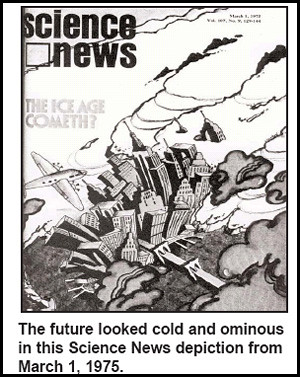
Tällberggruppens klimatalarmist Johan Rockström -- en av plenumtalarna i Köpenhamn -- får illustrera detta inlägg.
-
Har kollat några nyckelpersoner i organisationen som anvarade för Köpenhamnsmötet, International Alliance of Research Universities (IARU), samt talare under mötet. Dessa tycks genomgående vara akademiker som inte är klimatforskare. Någon har forskningsområdet "climate impacts". Flera har positioner i styrelser och organ inom universitets- eller den vetenskapliga världen och andra är mer eller mindre klimatktivister inom ramen för sin roll på universiteten (exempel).
En mötesledare på klimatkonferensen, klimatforskare professor Mike Hulme, uppmärksammade i denna BBC-artikel att IARU är en organisation som inte skapats av eller står under vare sig FN eller länders regeringar utan 2006 skapades mellan 10 självutnämnda toppuniversitet. De tycks inte ha någon koppling till etablerade miljö- eller hälsoorganisationer, inom eller utom FN. Då de varken har klimatforskarkompetens eller politiskt tydligt ursprung bör det kanske finnas skäl att ifrågasätta om Köpenhamnskonferensens skarpa uttalanden om forskning och politik -- att vi nu är i en värre situation än IPCC:s värsta scenario eller att radikala politiska beslut om snabba åtgärder krävs -- har något större värde.
Ett avsnitt ur Hulmes artikel:
Last week's conference has been widely reported as one at which the world's scientists delivered a "final warning" to negotiators about the necessity for a powerful political deal on climate.
Some commentators branded it "The Emergency Science Conference".
The six key messages include statements that:
"the worst-case IPCC scenario trajectories (or even worse) are being realised"
"there is no excuse for inaction"
"the influence of vested interests that increase emissions" must be reduced
"regardless of how dangerous climate change is defined", rapid, sustained and effective mitigation is required to avoid reaching it
There is a fair amount of "motherhood and apple pie" involved in the 600-word statement - who could disagree, for example, that climate risks are felt unevenly across the world, or that we need sustainable jobs?
But there are two aspects of the statement which are noteworthy and on which I would like to reflect: whose views does it represent, and what are the "actions" being called for?
Copenhagen consensus?
The Copenhagen conference was no Intergovernmental Panel on Climate Change (IPCC) event.
It was not a process initiated and conducted by the world's governments; there was no systematic synthesis, assessment and review of research findings as in the IPCC, and there was certainly no collective mechanism enabling the 2,000-plus researchers to consider drafts of the six key messages or to offer their own suggestions for what politicians may need to hear.
Debates included whether mimicking volcanoes could cool Earth
The conference was in fact convened by no established academic or professional body.
Unlike the American Geophysical Union (AGU), the World Meteorological Organization (WMO) or the UK's Royal Society - which also hold large conferences and from time to time issue carefully worded statements representing the views of professional bodies - this conference was organised by the International Alliance of Research Universities (IARU).
This little-heard-of coalition, launched in January 2006, consists of 10 of the world's self-proclaimed elite universities, including of course the University of Copenhagen.
IARU is not accountable to anyone and has no professional membership.
The statement therefore simply carries the weight of the secretariat of this ad-hoc conference, directed and steered by 10 self-elected universities.
The six key messages are not the collective voice of 2,000 researchers, nor are they the voice of established bodies such as the WMO. Neither do they arise from a collective endeavour of experts, for example through a considered process of screening, synthesising and reviewing.
Instead they were drafted largely before the conference started by the organising committee, sifting through research that they saw emerging around the world - some of it peer-reviewed, some of it not - and interpreting it for a political audience.
Taxing times
Which leads me to the second curiosity about this conference statement: what exactly is the "action" the conference statement is calling for? Are these messages expressing the findings of science or are they expressing political opinions?
Hela artikeln här.
----------------------------------------------------------------------------------------------------------------------
Tillbakalänkning: SvD; DN
Andra bloggar om: samhälle, miljö, Köpenhamn 2009, Köpenhamn, klimat, klimatpolitik, kyoto, kyoto2


 Climategate -- The Crutape Letters, by Steven Mosher and Thomas W. Fuller
Climategate -- The Crutape Letters, by Steven Mosher and Thomas W. Fuller
 The Deniers
The Deniers


Bra inlägg! Jag undrar vilka ekonomiska intressen som ligger och ruvar i bakgrunden.
ReplyDeleteJag tror iofs inte detta med den mellan universitet bildade organisationen IARU behöver ha renodlade ekonomiska intressen, såsom att de vill tjäna på riktade bidrag i klimatpolitik. Det är akademiker från 10 universitet, och en del involverade tycks vara klimatalarmister. Jag googlade på ordföranden och han har visst engagerat sig mycket i att regeringen fonderar medel för universitet och forskning, vilket kanske låter bra. Å andra sidan tror jag Lindzen pekat ut det att regeringar efter världskriget mer exklusivt blev ansvariga för medel till universiteten som en orsak till likriktning och kanske det vi sett i klimatforskning (jag har inte läst Lindzens essä än).
ReplyDeleteNågot jag kan tänka mig är att de som verkar i detta nätverk anser att staten roll bör stärkas beträffande exempelvis styrning av energiprodukti, vad som bör få tillverkas eller utbildning i environmentalism eller "en moralisk" dimension i utbildning, där den större rollen för staten är implicit.
"Campus Sustainability" är en punkt i nätverkets hemsidas huvudmeny, och jag läste något om att de önskar att socialt ansvar ska genomsyra all utbildning, vilket väl i praktiken innebär att teknik och naturvetenskap politiseras.
Jag vet inte vilka personer som bildade detta nätverk mellan 10 universitet som själva kallar sig världens 10 främsta universitet, men att såna som klimataktivisten och matematikern Amanda Lynch engageras samt att Rockström bjuds in som talare bör väl säga något.